 We are fortunate to live and work in a community where service and philanthropy are part of our DNA. We recognize how important our local nonprofits are to the very fabric of our hometown. They provide a range of human services such as feeding and housing our neighbors in need to providing some of the cultural and environmental supports that make our community a desirable place to live.
We are fortunate to live and work in a community where service and philanthropy are part of our DNA. We recognize how important our local nonprofits are to the very fabric of our hometown. They provide a range of human services such as feeding and housing our neighbors in need to providing some of the cultural and environmental supports that make our community a desirable place to live.
The pandemic, the ensuing economic downturn, as well as the social justice awakening have had significant impacts on the nonprofit sector. This time has come with struggles. It has also come with silver linings. If there were a 2020 theme for nonprofits it would be “Reimagining Ourselves” – as we see organizations transforming themselves to provide programs and to fundraise in new ways, to form innovative alliances, and to align their missions with social equity.
Changing How Nonprofits Do Business
Nonprofits providing for the frontline needs of our community – food and housing insecurity, and childcare – have had to revamp how they do business to incorporate extensive safety protocols and adapt to the rapidly increasing community need. The outpouring of support from the community has been breathtaking. With the funding and volunteer offers come the challenges of putting those resources to action. And while the contributions are appreciated, most nonprofits focused on providing for basic needs are waiting for a tsunami of need to follow with the end of the eviction moratorium and unemployment continuing to increase.
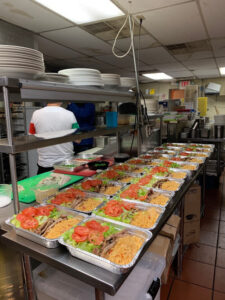 Share My Meals was a budding new nonprofit focused on bringing unused food from restaurants and cafeterias to food insecure people when the pandemic hit. In the last several months, Share My Meals has delivered over 25,000 meals thanks to community support.
Share My Meals was a budding new nonprofit focused on bringing unused food from restaurants and cafeterias to food insecure people when the pandemic hit. In the last several months, Share My Meals has delivered over 25,000 meals thanks to community support.
Princeton Nursery School, which normally relies on volunteers, has wrestled with the double whammy of higher staffing needs due to smaller class sizes for safety reasons and elimination of outside volunteers due to new regulations. Executive Director, Rose Wong, has driven several miles just to get affordable personal protective equipment, gloves and hand sanitizer the school needs to care for the preschoolers.
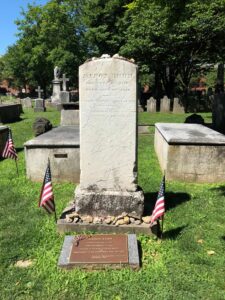
Nonprofits that served in-person clients until the pandemic hit and have the luxury of doing so remotely, have had to change how they provide services and programs. Imagine having to rethink the basic programs that you offer the community to eliminate the need to be face-to-face. The result – innovative approaches to bringing cultural experiences to people in their homes. The Historical Society of Princeton took advantage of the adoration of Lin Manuel Miranda’s musical “Hamilton” to provide “A Virtual Tour of Hamilton’s Princeton” for fans to explore historical sites without physically attending. The Princeton Senior Resource Center now offers courses online on topics from conversations about literature to yoga.
Nonprofits are rethinking their expenses and sources of revenue, too. With tight budgets that are being squeezed even further, nonprofits are reexamining every line item including their space. As with other sectors, nonprofits are considering whether they can remain virtual and if they need their physical space. HiTops made a recent strategic decision to sell their building and use the proceeds to focus on programming.
 With formal galas no longer an onsite option both for practical public health obstacles as well as the optics of lavish events in the midst of suffering, nonprofits are exploring new ways of connecting supporters and raising funds. Many nonprofits have held virtual galas this year and are continuing to try to find ways to distinguish themselves in the sea of video meetings and online events. Virtual events are generally shorter than past galas and have the added benefit that attendees do not need to dress up below the waist. The Suppers Program partnered with local restaurants Jammin’ Crepes and Terra Momo Restaurant Group to offer “Box to Table” meals to virtual gala attendees to enjoy at home. NonProfitConnect offered Zoom breakout rooms for networking to mirror one of the key aspects of the in-person event.
With formal galas no longer an onsite option both for practical public health obstacles as well as the optics of lavish events in the midst of suffering, nonprofits are exploring new ways of connecting supporters and raising funds. Many nonprofits have held virtual galas this year and are continuing to try to find ways to distinguish themselves in the sea of video meetings and online events. Virtual events are generally shorter than past galas and have the added benefit that attendees do not need to dress up below the waist. The Suppers Program partnered with local restaurants Jammin’ Crepes and Terra Momo Restaurant Group to offer “Box to Table” meals to virtual gala attendees to enjoy at home. NonProfitConnect offered Zoom breakout rooms for networking to mirror one of the key aspects of the in-person event.
Nonprofits are trying new ways to raise revenue that respect the limits placed on us by the pandemic. The Princeton-Blairstown Center offered the log cabins they normally use for summer programs to community members looking for an outdoorsy, accessible venue to relax this summer, hoping to add to their bottom line. McCarter Theatre Center is offering “A Christmas Carol @Home” for Dickens starved families to perform their own rendition in their home of the classic “A Christmas Carol,” a way to connect mission as well as bring in a little revenue.
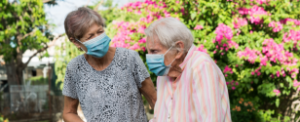
Volunteerism is impacted by the challenges of 2020 as well. For organizations that historically have relied on older volunteers, such as Interfaith Caregivers of Mercer County, they needed to focus on protecting their elderly clients as well as their volunteers. Interfaith Caregivers initially experienced a reduction in volunteers of all ages due to illness and fear. Then, as volunteers have begun to return, they have had to continue to monitor, assess and train them to be proactive about risk, given COVID fatigue and confusing external messaging about risks.
Community members want to contribute now, especially as they see the need. Unfortunately, some nonprofits do not have the capacity to absorb the volunteers – particularly those interested in skills-based volunteering – as they focus on keeping their doors open.
Nonprofits continue to need an infusion of new board members and community members are rising to the occasion. Board meetings are better attended now that all members can attend remotely. But some individuals still struggle with bandwidth as they homeschool children or work hours that do not end in their home office.
Collaborating
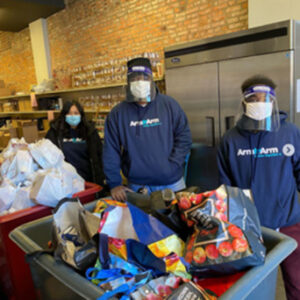
One of the silver linings of 2020 is the rapid movement towards nonprofit collaboration. Although funders have been pushing nonprofits to work together for a while, by necessity nonprofits are now open to more innovative approaches to solving community problems and exploring new partnerships. Housing Initiatives in Princeton (HIP) and Arm in Arm have partnered to provide rental assistance to community members with funding from the Princeton Area Community Foundation. Meals on Wheels and the Trenton Area Soup Kitchen (TASK) now work together to streamline their meal deliveries, increasing their efficiencies and lowering risk to volunteers.
Moving towards Increased Equity
Nonprofits continue to awaken to the need for change around social equity. Although they are at different stages in their journey, many are reexamining how they do their work and thinking about how to be more inclusive throughout the organization. Most nonprofits are taking a step back to reexamine board makeup. A 2019 study by the Center for Nonprofits found that 79% of New Jersey nonprofit board members and 79% of CEOs of nonprofits are white.

Young Audiences of New Jersey and Eastern Pennsylvania has committed to being an anti-racist organization. They post their strategic goals around inclusion on their website which include a range of activities from evolving policies to recruiting artists who are people of color.
Funders are increasingly asking questions that explore where nonprofits are on their equity journey. At NonProfitConnect, we are seeing an increase in interest of future board members around social justice as opposed to other issues.
Heading Into 2021
As we look back at 2020 and towards 2021, it is clear that nonprofits have had to adapt and change in fundamental ways. The financial challenges and unmet needs that we are seeing are not likely to subside in the near future. But the collaborations between nonprofits, the appreciation for the role that nonprofits play in our community, the newfound focus on social equity and the innovative approaches to our work will continue to drive us to support our community into the future.
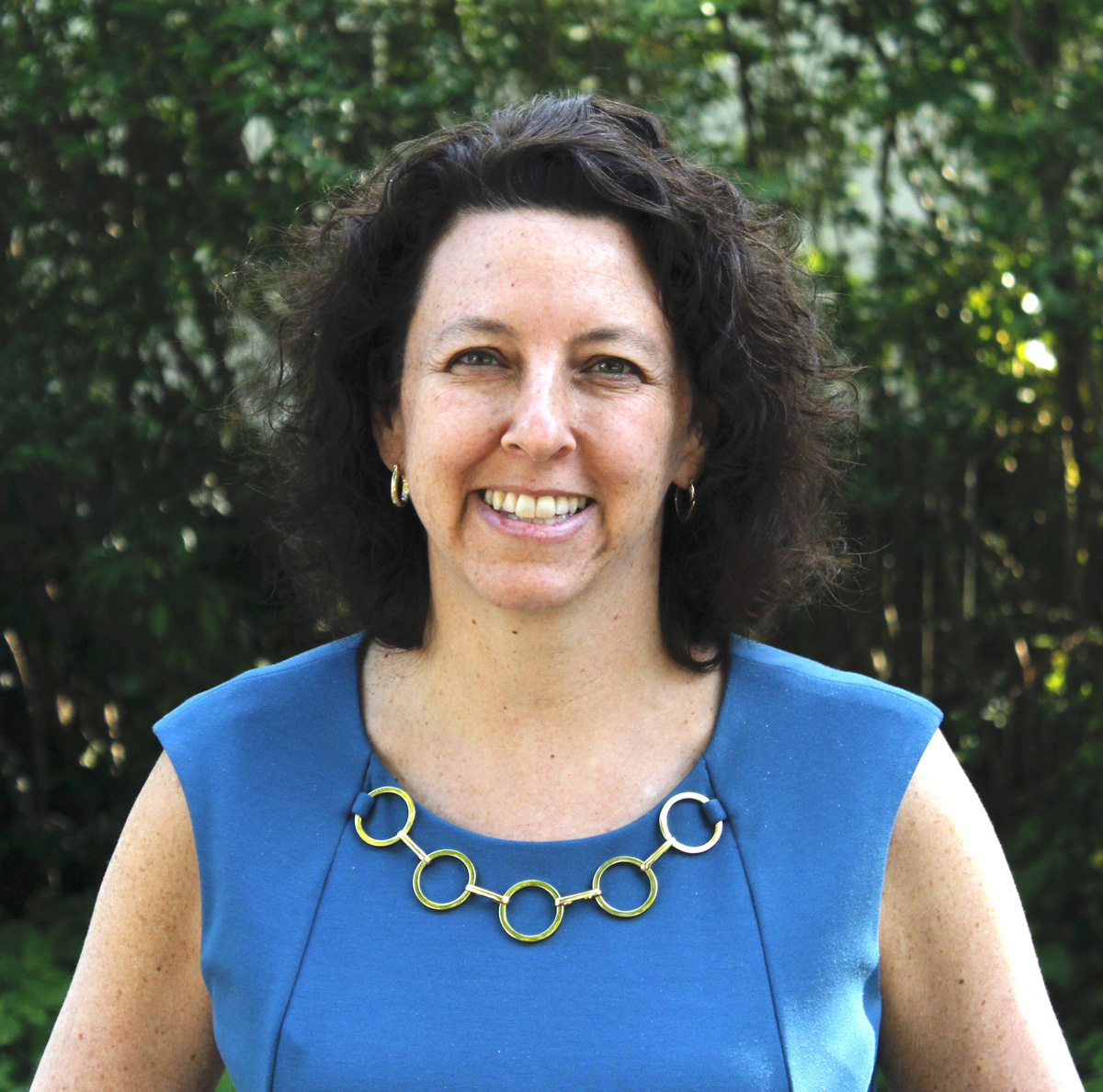
Allison Howe has over 25 years of leadership experience in the nonprofit sector including working at Planned Parenthood and the Alzheimer’s Association. She has served as Executive Director of Mercer County-based NonProfitConnect for two years. She enjoys collaborating with community nonprofits to build capacity.
